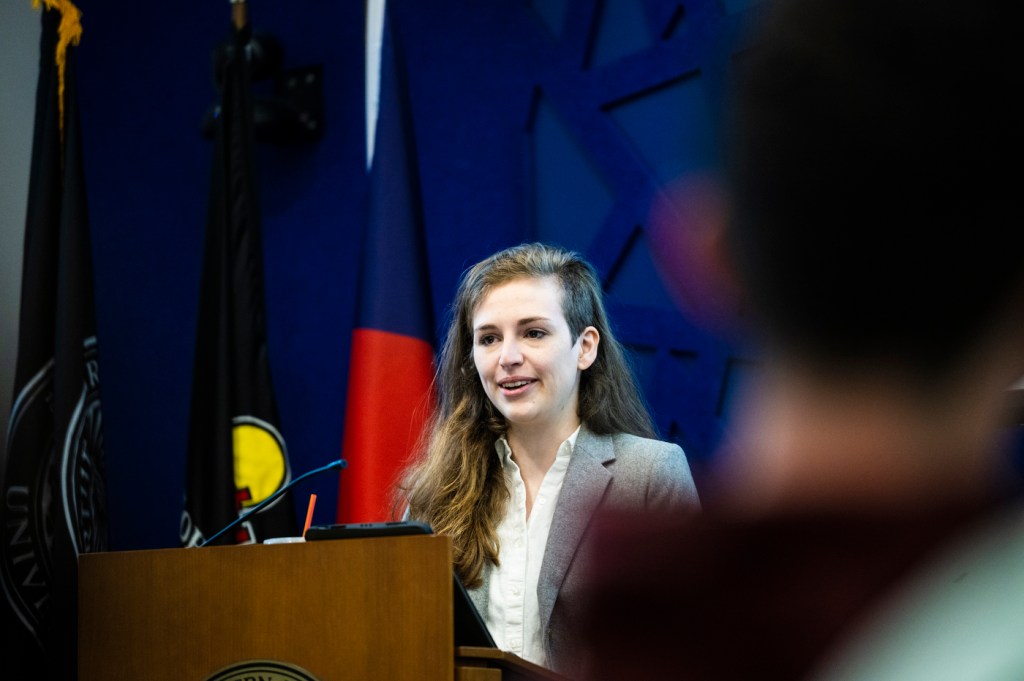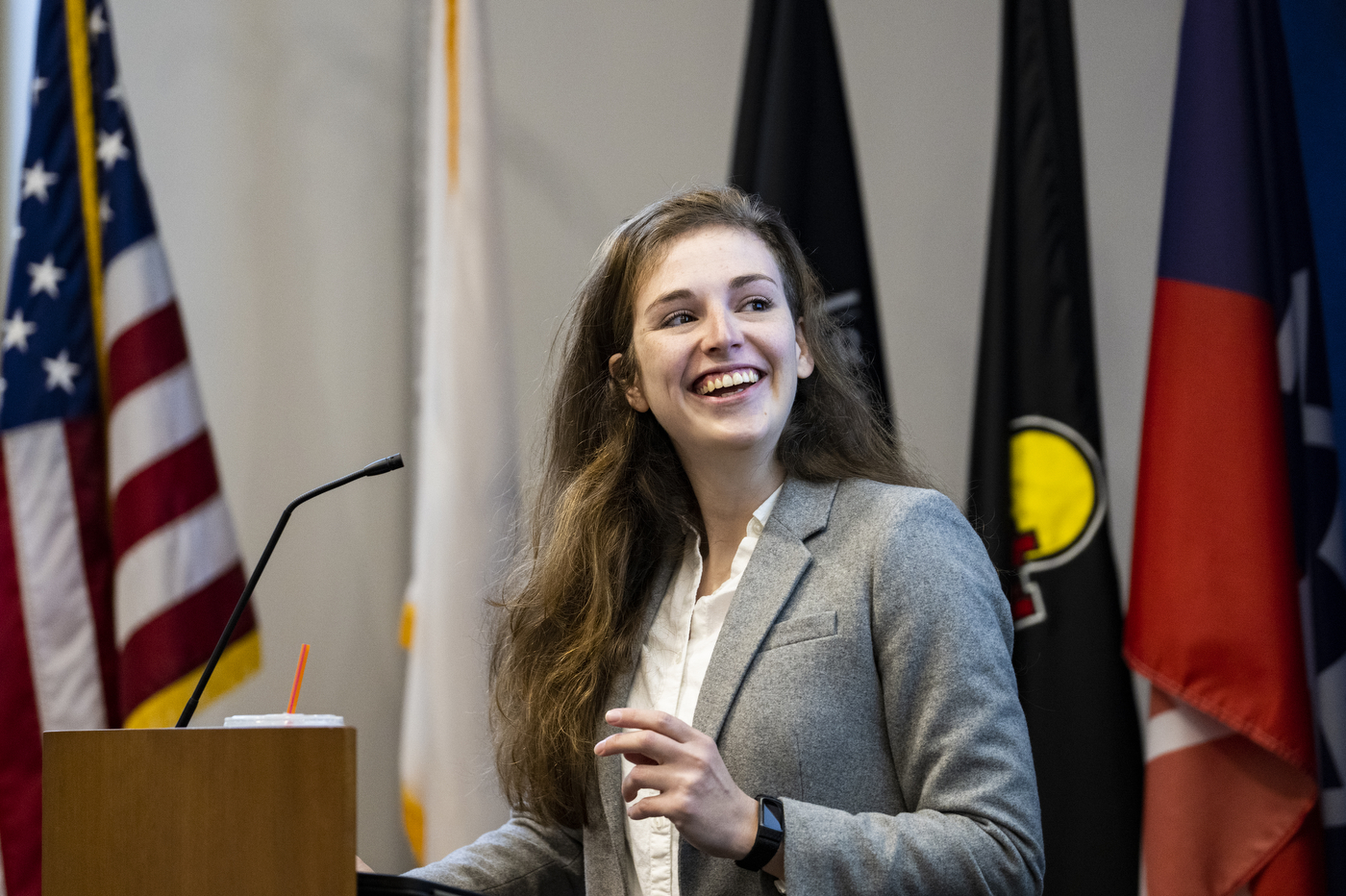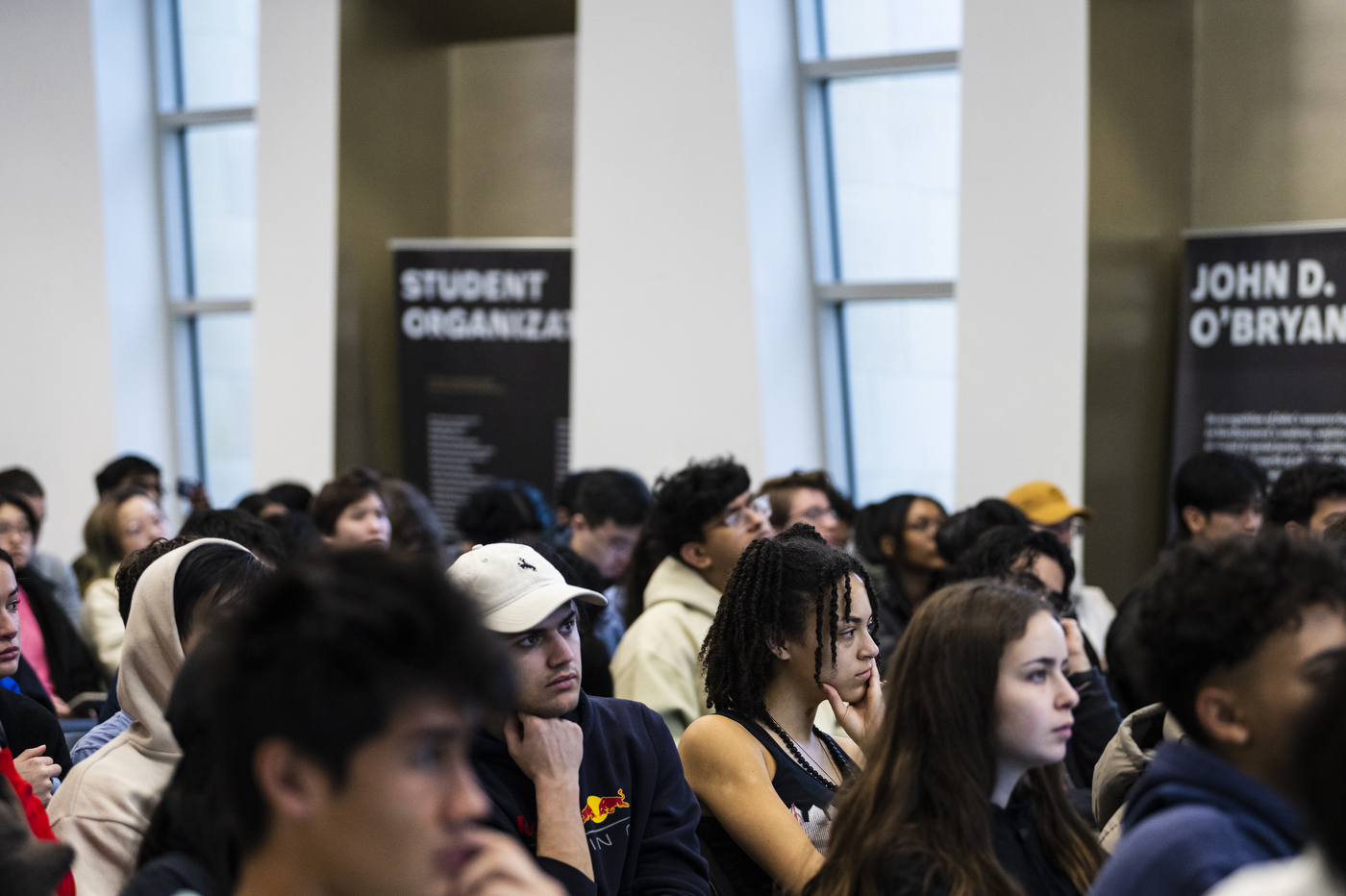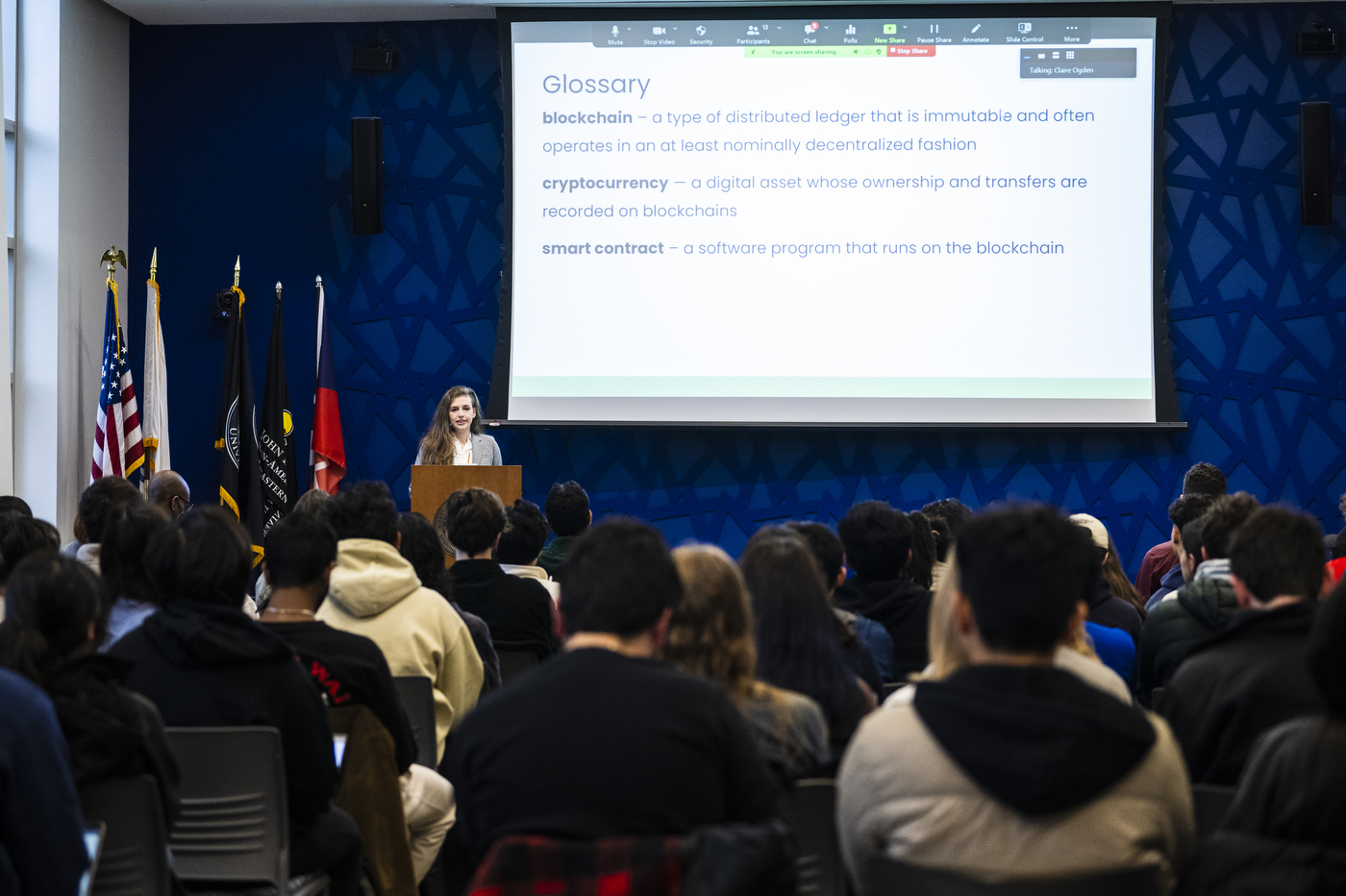Northeastern graduate and crypto critic Molly White discusses blockchains and digital ethics

Molly White, a well-known critic of the blockchain industry, threw out the question to a room full of computer science students at the Cabral Center on Northeastern’s Boston campus.
“Does anyone here think they’re going into the blockchain industry?” White, a 2016 Northeastern graduate, asked Tuesday afternoon.
Nobody raised their hand.
In a sense, it is a testament to White’s criticism of how the billion-dollar industry operates. As a result, students are now questioning whether it is a field worth going into after graduation.
“It’s really interesting to see how that’s changed over the past year,” White said.
The Washington Post profiled White as “the cryptocurrency world’s biggest critic.” In addition, she was named on Forbes 30 under 30 in 2023 for her work criticizing the crypto craze, which helped shape the U.S. government’s approach to fintech policy.
On her website, Web3 is Going Just Great, White investigates and exposes scams and questionable practices in the opaque and unregulated industry.

White is now a fellow at the Library Innovation Lab in Cambridge, where she is continuing her research and work surrounding the cryptocurrency and blockchain industries along with online governance, digital identity, and the future of the web.
A blockchain is a decentralized system in which a record of transactions, especially those made in cryptocurrency, such as Bitcoin and Ethereum, is maintained across computers linked in a peer-to-peer network.
Bitcoin launched in 2009 following the financial crisis in the U.S., with the creators wanting to make a system outside the traditional banking system. CoinMarketCap now reports nearly 23,000 cryptocurrencies, with a total market capitalization of $1.1 trillion.
The market soared following the pandemic in 2021 and 2022, White said. However, after the collapse of the cryptocurrency exchanger FTX last year, the market has failed to make the same returns.
“I think the volatility is sometimes underestimated by the average consumer who sees bitcoin as an asset class like the stock market,” White said. “They’re not used to the 1,000%, 10,000% swing. So there is this danger where people will start investing in cryptocurrencies, not realizing that there is an enormous amount of risk.”
White noted that users who kept their digital currencies in FTX are still waiting to see if they will get anything in return after it fell under bankruptcy. This is because there are close to no regulations or safe holds, as seen in the normal banking industry.
The ambiguity allowed by using cryptocurrencies can lead to fraud, theft and other criminal activities that are hard to track down or prosecute, White said.
However, tracking pseudonyms used for the open ledger tractions is improving. Once connected to a person, it is easy to track all their transactions, White said. She said this might be a positive for tracking criminals but not so much if you are an everyday person.



A Northeastern graduate in computer science, White said her time at the university continues to help her today when questioning the ethics of developing software.
“(Developing software) is not a neutral action,” said White. “You have to really consider whether or not the things you’re doing have negative externalities. You’re going to have to consider whether or not it will have a good impact on the world.”
Though she is not currently doing a lot of computer science, as she is focused on writing about the topic, White advises students to continue to learn about the technology at play.
“The biggest advice I would have is to seek out tech criticism,” White said. “It’s something I wish I had learned more about sooner.”
Students should look at the broader implications of emerging technology and look beyond the marketing vacuum, White said.
“Understanding those types of questions and criticisms that are out there, I think, will embark on a more thoughtful career, even if you’re not starting a company and you’re working as a junior software engineer,” White said. “I think it’s still very useful to feel confident that the work you’re doing is broadly helping people.”
Beth Treffeisen is a Northeastern Global News reporter. Email her at b.treffeisen@northeastern.edu. Follow her on Twitter @beth_treffeisen






